It’s still fish a jumpin’ in Montauk, Long Island, NY. One of Capt. Andrew Derr‘s better anglers lands a nice striper on a blue-bird fall day.
When it was summertime, the livin’ used to be easy, the fish were always jumpin,’ and daddy was makin’ a livin’. But, now, one of these mornings, you could wake up, and there ain’t no fish jumpin’, and daddy can’t make a livin’.
— Skip Clement [edited from Gershwin’s Summertime]
Where the Oceans Have Been Colder and Hotter Than Average

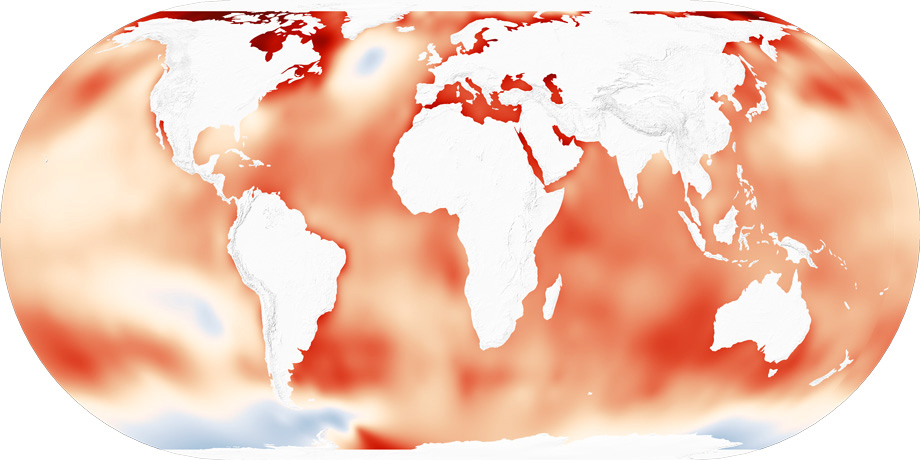
2010 – We’re on a bad roll. Get rid of the fake Republicans and we can at least make a dent.
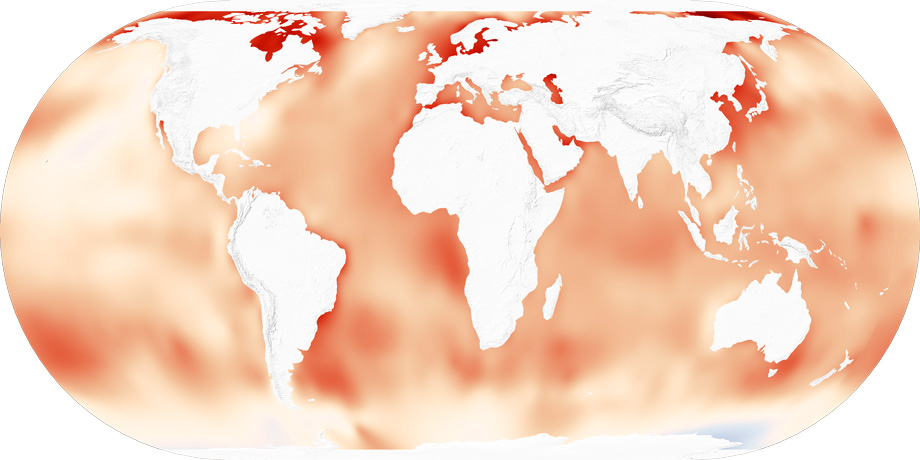
2000
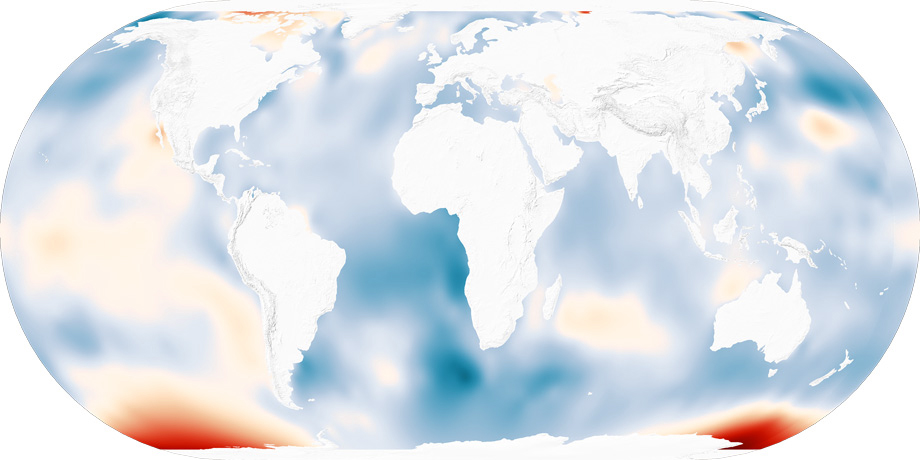
1970
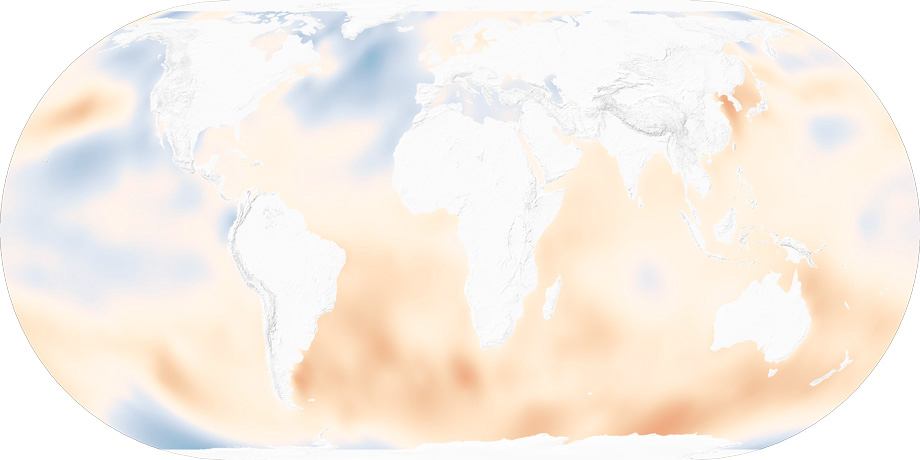
1900
Average temperatures from each decade compared with the 20th-century average.
Ocean temperatures have been consistently rising for at least three decades. Scientists believe that global sea surface temperatures will continue to increase over the next decade as greenhouse gases build up in the atmosphere.
According to a report by the International Union for Conservation of Nature released last week, the Southern Hemisphere has experienced intense warming over the past decade, with strong heat accumulation in the midlatitude regions of the Pacific and Indian Oceans.
Natural patterns such as El Niño and La Niña can have year-to-year effects on temperatures. Individual storms can also influence ocean temperatures for months or longer.
But the overall temperature trends by decade reveal a backdrop of human-caused warming
Last year, nearly all observed ocean surface temperatures registered above average because naturally occurring conditions caused by El Niño combined with human-induced warming. About a quarter of those observations broke record highs.
Heat Accumulates in the Oceans
Since 1955, more than 90 percent of the excess heat retained by the Earth as a result of increased greenhouse gases has been absorbed by the oceans, leaving ocean scientists like Eric Leuliette at the National Oceanic and Atmospheric Administration feeling that 90 percent of the climate change story is being ignored.
What Hotter Oceans Bring
The oceans act as Earth’s enormous heat sponge, sheltering continents and the people who live on them from atmospheric extremes. The near-surface ocean takes only decades to warm in response to elevated greenhouse gas concentrations, but the deep ocean will take centuries to millenniums, raising sea level all the while. In the meantime, warmer ocean temperatures may also increase the destructive potential of extreme weather, like cyclones and hurricanes.
In fact, the effects of warmer waters are already widespread . . .
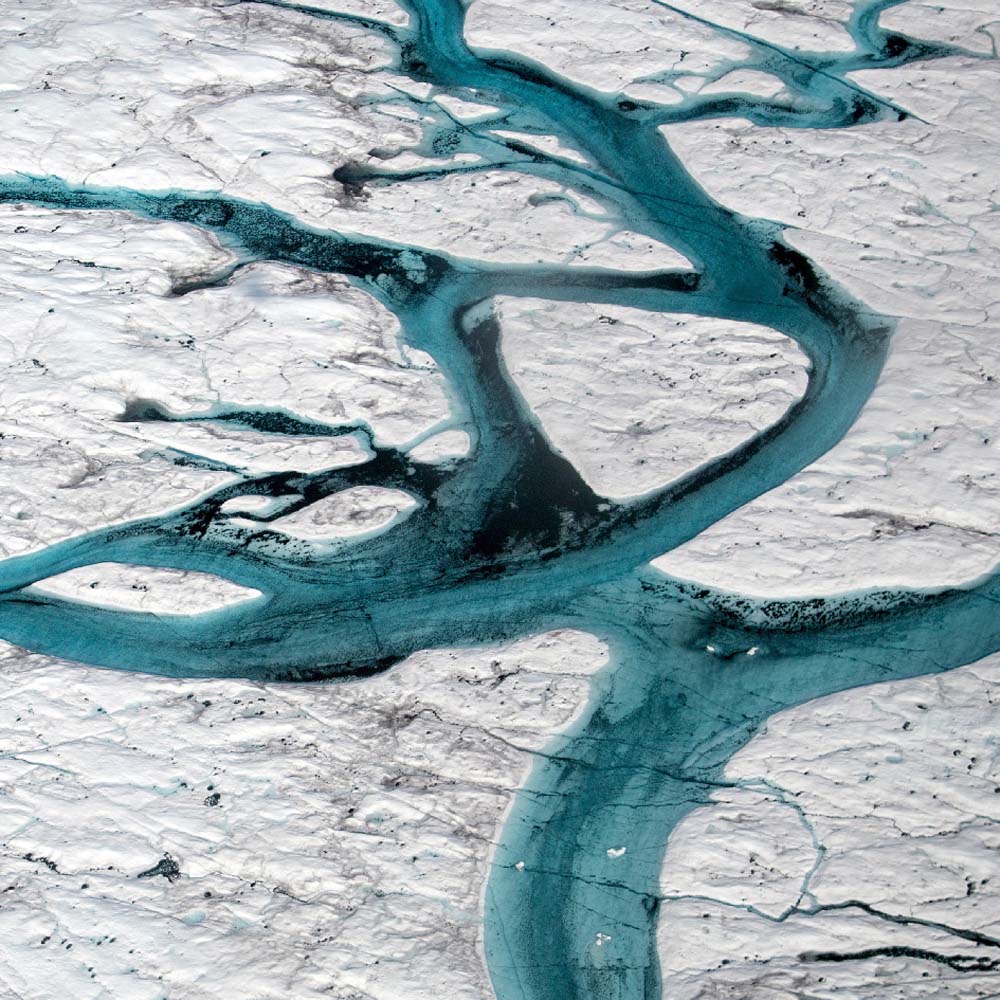
Ice Melt and Sea Level Rise. The Greenland ice sheet is studded with meltwater streams, rivers and lakes. The rate of melt is alarming many scientists. Both ice melt and thermal expansion are causing a significant rise in global sea levels.
Get the complete coverage of this story here . . .
NOTE: NYTIMES will allow visitors around five stories a month without a subscription – fill out a BS form, of course.


